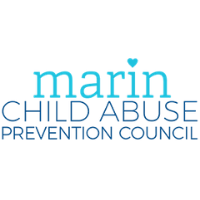
As the holiday season begins, it is good to remind yourself to slow down, be present in the moment, and enjoy time with family and friends.
With the cool weather (and even some rain!) it is easy to stay in our pajamas all day, cook, bake, listen to music, and reflect on everything there is to be thankful for. But sometimes, when life gets busy and stressful (and disrupted by a pandemic), it’s easy to take things for granted or feel too overwhelmed to be grateful for “the little things.”
Dear CPI,
We’re visiting extended family during the holidays this year. We haven’t seen several family members since before the pandemic, which means our two young children (2, 5) won’t know or remember them. I’m worried it will be overwhelming for our kids to be around so many “strangers,” and that my wife and l will spend our entire visit handling tantrums. I also worry about everyone hugging and kissing our kids and am afraid we’ll get exposed to COVID. Do you have any suggestions?
Miguel
Dear Miguel,
Good question! The holidays can be an exciting AND stressful time for many children and adults. That might be especially true this year. Many families are eager to celebrate together after spending the holidays apart last year due to the pandemic, and several children, teens, and adults are also finding it difficult to adjust to being around a lot of people again. Here are a few tips to try:
Maintain your children’s daily routines. The predictability of daily routines helps children feel secure and can prevent meltdowns caused by being tired, hungry, over-stimulated, or overwhelmed. Ask family members about their plans for mealtimes, visits, exchanging gifts, or other holiday activities, and let them know your children’s schedules. This allows you to discuss ways to minimize disruption to your children’s routines or help family members understand why your family might follow a different schedule at times.
Talk about plans and expectations. Talk with your children about your travel plans, which relatives they’ll see, and holiday traditions. If you can, show them photos of family members they don’t know or remember so that their names and faces will seem familiar when they meet in person. Talk about any family rules that will be the same (or different) as when they’re at home—e.g., sharing, cooperating, amount of screen time (TV, movies, tablet). This helps them know what to expect, which prepares them to cope with unfamiliar situations.
Also talk with family members about how to have a COVID-safe celebration. Will you gather indoors or outdoors? If indoors, will family members be supported if they choose to wear masks and maintain physical distance? Let your family know in advance about any boundaries or limits about hugging and kissing your kids. If they protest, explain that it’s out of concern for everyone’s health and safety and ask them to respect your decision, even if they don’t agree with it.
Have simple, engaging activities for your children. This helps prevent meltdowns caused by boredom or restlessness. Take healthy snacks, some books and a few of their favorite toys on your trip. Play guessing games, make up stories, or sing songs together. And don’t be too hard on yourself if you relax the rules about screen time during your visit. This can give both children and parents a much-needed break from constant activities and socializing.
Encourage the behavior you want to see more of. Give your children descriptive praise when they’re being kind, helping others, following family rules, or expressing their feelings. This shows them you appreciate their efforts and encourages them to keep it up.
Take time for yourself. Living with fear, uncertainty, disruption, and loss during nearly two years of a global pandemic has taken a physical and emotional toll on many people. Whenever you can, find time to do something you enjoy, like catching up with a relative, exercising, taking a nap, or sitting in silence by yourself.
Final thoughts: Holidays provide opportunities for quality family time, but they can also add stress and pressure. Try a few of these positive parenting strategies to help you and your family truly enjoy each other and the spirit of the holidays.
CPI's monthly parenting article provides tips for families raising children, based on the world-renowned Triple P – Positive Parenting Program, available in Sonoma County at CPI. If you have a question or idea for a future column, please email rociom@calparents.org. This article is created by Nicole Young, the mother of two children, ages 17 and 21, who also manages Santa Cruz County's Triple P - Positive Parenting Program. Scientifically proven, Triple P is available locally through the Child Parent Institute. Our classes are listed at calparents.org/classes.











